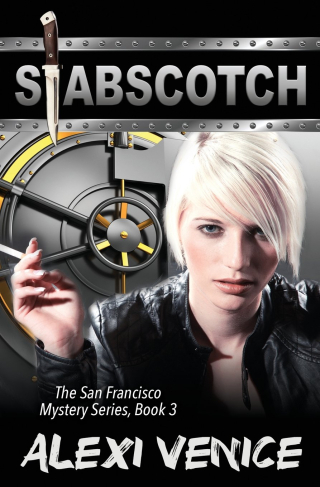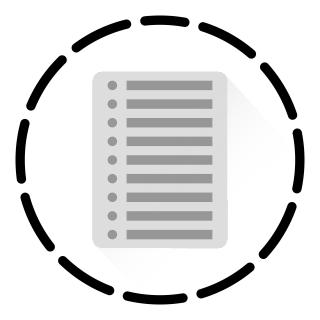Rob Bignell's Blog, page 218
April 13, 2018
Editing clients��� latest mystery book tops chart
A book I  recently edited for a client has hit No. 1 in its browse category on Amazon.com. "Stabscotch," by bestselling Amazon author Alexi Venice. topped the sales charts during the last week of March. Book 3 in The San Francisco Mystery Series, "Stabscotch" continues the story of Police Detective Tommy Vietti, District Attorney Amanda Hawthorne, and her fianc��e, Dr. Jen Dawson, who's also the mother of Vietti's child.
recently edited for a client has hit No. 1 in its browse category on Amazon.com. "Stabscotch," by bestselling Amazon author Alexi Venice. topped the sales charts during the last week of March. Book 3 in The San Francisco Mystery Series, "Stabscotch" continues the story of Police Detective Tommy Vietti, District Attorney Amanda Hawthorne, and her fianc��e, Dr. Jen Dawson, who's also the mother of Vietti's child.
In "Stabscoth," Vietti expects the Feds to take a murder case from him since it involves an employee of a high-profile, international institution. Instead, they send Roxy MacNeil, a Scottish banking expert, to co-investigate with him. Smoking her cigarettes, using vulgar language and drinking Scotch, Roxy gives the impression that she's a sluff-off. However, Tommy notices that things aren't quite what they seem when Roxy is working with him. Who is she really?
Amanda wonders if she should have a baby. As she considers who might be the perfect sperm donor, Amanda becomes immersed in Tommy and Roxy's murder investigation. Fighting off Roxy's overtures, Amanda can't help but be impressed by Roxy's skills.
Juggling her busy clinical practice and raising baby Kristin, Jen is by Amanda's side at public events. She can handle Amanda being a semi-celebrity, having a ton of old girlfriends, and even being hit on by strangers at the Dyke March. Roxy, however, is Jen's worst nightmare. Beautiful. Mysterious. Smart. Sexy. And powerful. As far as Jen knows, Roxy is more powerful than Amanda, and Amanda is drawn to power like a dog to raw meat.
"Stabscotch" can be purchased online as a paperback or Kindle ebook.
Professional Book Editor: Having your novel, short story or nonfiction manuscript proofread or edited before submitting it can prove invaluable. In an economic climate where you face heavy competition, your writing needs a second eye to give you the edge. I can provide that second eye.
<A HREF=���http://ws-na.amazon-adsystem.com/widg... Widgets</A>
Related articles
 Five Great Quotations about the Writing Process
Five Great Quotations about the Writing Process Writing Inspiration: Seek another's advice
Writing Inspiration: Seek another's advice Make tables readable in your self-published book
Make tables readable in your self-published book
April 12, 2018
Generate book sales by offering webinars
A great  way to generate money from your book writing is by offering webinars.
way to generate money from your book writing is by offering webinars.
You���ve probably heard of and even attended seminars. A webinar is exactly the same, except that���s done over the Internet.
Since you���ve written a book, you���re more than half done with creating a webinar. All you���re really in a webinar doing is turning your written, published information into an event. You share that information with others, just as you would in a book, but instead say it aloud to a live audience.
Webinars mark an affordable, easy way to sell more books. When you host a webinar, you place your expertise and hence your books right in front of potential readers. You also get people to notice you, as webinars can be much more effective than blogs at attracting attention and garnering new sign-ups for your mailing list. You���ll gain authority as well; by simply presenting valuable information to others, people respect you as a maven in your field. Lastly, you can bond with your readers; for them, seeing you on a screen and conversing with you through it is the next best thing to standing next to you.
Putting on a webinar involves several steps.
Begin by writing a script for the webinar. You can draw material from your book but be sure to present new information as well. Spend about five minutes on an introduction in which you welcome everyone and tell a little about yourself; this gives people a chance to show up late or to fix their faulty connections without missing the presentation. Then spend at least 25 minutes, but no more than 45 minutes, on a presentation. Leave 10 minutes at the end for a Q&A. Have material prepared so that if there aren���t many questions you can provide some additional information.
Next, you���ll need to ensure you have a way to technically deliver the webinar. A laptop camera or other way to take video that can be streamed live via the Internet is necessary, as well as a microphone on your computer; for the latter, you probably will want to used a dedicated mic for superior sound quality. A number of options exist online so others can interact live with you; most authors use an app on a page at their website where the webinar is embedded (btw, the URL for this page is revealed only to those who sign up for the event). The free Google Hangouts on Air is popular for this; with it, you can offer a slide show presentation as well as appear live on camera.
Once you have a script and the technical hardware/software, practice and rehearse. This will ensure your delivery goes smoothly and that you don���t have any technical problems during the webinar.
Lastly, you need to promote and market the webinar. Many authors who���ve held webinars report the most successful strategy for promoting the event is to treat it as like the lead-up for a book launch. Start by adding a registration page to your website. Then write a blog entry about the event, including a place where people can list their questions that you���ll answer during the event. Next, pen guest blogs for other sites; mention the webinar in the post or at the end where your bio is given. Make regular posts on social media about the event with link to where can register. Send three promotions with a registration form to everyone on your email list; the first email should be sent a week before the event, the next one four days before, and last one the day before. Typically, only about a quarter of the people who���ve signed up for the webinar actually attend; you can boost that number by sending out an email to all who���ve registered just before your presentation begins.
Professional Book Editor: Having your novel, short story or nonfiction manuscript proofread or edited before submitting it can prove invaluable. In an economic climate where you face heavy competition, your writing needs a second eye to give you the edge. I can provide that second eye.
<A HREF=���http://ws-na.amazon-adsystem.com/widg... Widgets</A>
Related articles
 Five Great Quotations about the Writing Process
Five Great Quotations about the Writing Process Writing Inspiration: Seek another's advice
Writing Inspiration: Seek another's advice Make tables readable in your self-published book
Make tables readable in your self-published book
April 11, 2018
Use hyperbole to make memorable moments
Sometimes  the best way to drive home a point is to exaggerate. When doing so in a story, the author is utilizing a technique known as hyperbole.
the best way to drive home a point is to exaggerate. When doing so in a story, the author is utilizing a technique known as hyperbole.
For example, Mark Twin in ���The Celebrated Jumping Frog of Calaveras County,��� to describe a character���s gambling habits, wrote, ������if there was two birds setting on a fence, he would bet you which one would fly first.���
These exaggerations are not meant to be taken seriously. Still, they can be quite powerful, either by creating a strong impression or by serving as a form of humor.
Hyperbole achieves the first by expressing emotional states via an intensifying of the wording, such as: It���s as hot as an oven outside; Her face was as thin and dry as an onion skin; or His pupils sharpened like the points of two knives. Usually, though, it is noticed as a form of humor, especially as quips; for example, Sammy Johns sang in ���Chevy Van,��� ���I put her out in a town that was so small/You could throw a rock from end to end.���
Sometimes characters themselves can be hyperboles. Paul Bunyan and other folklore heroes are such examples. There���s no way Paul could be as large as he was, eat as much as he did, or achieve all that he was credited for.
Consider using hyperboles in your own writing. They can spice up your writing by creating memorable imagery or humor.
Professional Book Editor: Having your novel, short story or nonfiction manuscript proofread or edited before submitting it can prove invaluable. In an economic climate where you face heavy competition, your writing needs a second eye to give you the edge. I can provide that second eye.
&lt;A HREF=���http://ws-na.amazon-adsystem.com/widg... Widgets&lt;/A&gt;
Related articles
 Five Great Quotations about the Writing Process
Five Great Quotations about the Writing Process Writing Inspiration: Seek another's advice
Writing Inspiration: Seek another's advice Make tables readable in your self-published book
Make tables readable in your self-published book
April 10, 2018
5 Must-See Prompts for SciFi Authors
Science fiction  stories typically arise from a novum, a scientifically plausible concept that is a ���reality��� in the tale. The novum might be an mechanical device like robot servants, artificial intelligence, or faster-than-light spacecraft; it also can be a hypothetical idea such as ���The Earth is a scientific experiment run by aliens to determine the meaning of life��� or ���The government outlaws books.��� The author then asks ���What if?��� exploring how the world with this novum is different than ours.
stories typically arise from a novum, a scientifically plausible concept that is a ���reality��� in the tale. The novum might be an mechanical device like robot servants, artificial intelligence, or faster-than-light spacecraft; it also can be a hypothetical idea such as ���The Earth is a scientific experiment run by aliens to determine the meaning of life��� or ���The government outlaws books.��� The author then asks ���What if?��� exploring how the world with this novum is different than ours.
Among the problems of many novice science fiction writers is instead of introducing a new novum they rely on used furniture ��� that is, they borrow novums from popular SF series. After all, how many novels have you read that use starships exploring the galaxy for the Earth-based Federation? Barely changing names to appear as if you are not appropriating ��� a starcraft seeking M-class worlds for the Earth-centered Alliance ��� still doesn���t cut it as original or fully using the potential that science fiction offers to examine our culture or humanity.
To help SF writers, here are some novums of potential near-future inventions from which stories could be built:
Delta Pavonis colonization
What if future space explorers decide to colonize a habitable planet circling this star, which is slightly brighter and older than our sun? What challenges face those who settle a more luminous star?
Implanted mobile phones
What if a mobile phone simply could be implanted in your body, say in your hand? Apps on the phone could be used to track your health and determine your location, and you never would have to worry about misplacing your phone again (unless you got cut up in a car accident).
Intelligent buildings
What if each building had an artificial personality that communicated with people to ensure human comfort and regular maintenance? The building also uses UV and ionizing technologies for sterilization and zap insects with laser-based devices.
Sleep exams
What if a small sensor could be placed on your head to determine if your mind was showing indications of Alzheimer���s, Parkinson���s, depression, schizophrenia and more? The sensor would monitor your brain waves, which could be run through an app on your computer.
Exoskeletal casts
What if instead of plaster casts we wore a lightweight exoskeletal cast that was modeled on 3D imaging of the limb���s shape and an X-ray of the fracture suffered? Could these casts be used for other purposes than to heal a fracture?
Professional Book Editor: Having your novel, short story or nonfiction manuscript proofread or edited before submitting it can prove invaluable. In an economic climate where you face heavy competition, your writing needs a second eye to give you the edge. I can provide that second eye.
<A HREF=���http://ws-na.amazon-adsystem.com/widg... Widgets</A>
Related articles
 Five Great Quotations about the Writing Process
Five Great Quotations about the Writing Process Writing Inspiration: Seek another's advice
Writing Inspiration: Seek another's advice Make tables readable in your self-published book
Make tables readable in your self-published book
April 9, 2018
Use third-person objective for neutral narration
A popular  third-person point of view in fiction is third-person objective. This occurs when a narrator outside of the story tells what occurs without giving the characters��� internal thoughts, opinions or feelings.
third-person point of view in fiction is third-person objective. This occurs when a narrator outside of the story tells what occurs without giving the characters��� internal thoughts, opinions or feelings.
Consider the following passage, written in third-person objective:
The valley below them stretched deep and black. On the ridge above was only scrub and rock with a stout, teetering stone wall at the edge. The sun rising behind the ridge had just begun to warm the wall and lift the shadows from the valley. The Californian and the girl with him sat on the wall where it remained upright, where rain and wind had yet to erode the granite at the ridge���s edge. In a half-hour, light would fully wash the dark from the valley, allowing the small river running through it to be seen.
���Want a cigarette?��� the girl asked. She opened her macrame satchel that sat between them.
The Californian fished a lighter from his pocket. ���Sure.���
Notice how the passage utilizes an uninvolved narrator who is unnecessary to the progression of the plot. The narrator is not a character in the story and merely tells what happened. The narrator���s viewpoint is that of a camera on a wall relaying pictures of the scene.
Because of this, the narrator only states the observable actions and dialogue but not what is going on inside the characters��� minds. We have no idea what the characters are thinking as they watch the shadow rise over the valley or what they feel about one another. Their internal thoughts and emotions are only inferred or spoken aloud.
The advantage of third-person objective is that the dehumanized narrator delivers an unbiased, neutral telling of the story. This ���just the facts, ma���am��� approach allows readers to make their own decisions about the ethics of the characters��� behavior without the taint of the narrator���s emotions, The disadvantage is that an emotional distance exists between the reader and the story���s characters. This can prevent readers from identifying with and liking characters.
An excellent example of third-person objective in literature is Ernest Hemingway���s short story ���Hills Like White Elephants.���
Professional Book Editor: Having your novel, short story or nonfiction manuscript proofread or edited before submitting it can prove invaluable. In an economic climate where you face heavy competition, your writing needs a second eye to give you the edge. I can provide that second eye.
Amazon.com Widgets
April 8, 2018
5 Great Quotations about ���What is a Writer?���
���Great writers  are indecent people - they live unfairly, saving the best part for paper. - Charles Bukowski
are indecent people - they live unfairly, saving the best part for paper. - Charles Bukowski
���The photographer frames the shot, writers frame their world.��� - Jeanette Winterson
���We are like Kafka���s Hunger Artist, performing astonishing feats for a nonexistent audience.��� - T. Coraghessan Boyle
���Writers write while dreamers procrastinate.��� - Besa Kosova
���The writer must be universal in sympathy and an outcast by nature: only then can he see clearly.��� - Julian Barnes
Professional Book Editor: Having your novel, short story or nonfiction manuscript proofread or edited before submitting it can prove invaluable. In an economic climate where you face heavy competition, your writing needs a second eye to give you the edge. I can provide that second eye.
&amp;lt;A HREF=���http://ws-na.amazon-adsystem.com/widg... Widgets&amp;lt;/A&amp;gt;
Related articles
 Writing Inspiration: Seek another's advice
Writing Inspiration: Seek another's advice Writing Inspiration: Who are you?
Writing Inspiration: Who are you? Five Great Quotations about the Writing Process
Five Great Quotations about the Writing Process Make tables readable in your self-published book
Make tables readable in your self-published book Four ways to write a great tweet that sells books
Four ways to write a great tweet that sells books
April 7, 2018
How to ���get in the zone��� when writing
The time  you���ve set aside time for writing has arrived at last. You���ve been looking forward to it all day; pen and paper are before you, a cup of tea is brewed. Nobody is around so you can concentrate.
you���ve set aside time for writing has arrived at last. You���ve been looking forward to it all day; pen and paper are before you, a cup of tea is brewed. Nobody is around so you can concentrate.
And yet you can���t.
You just can���t focus on writing, for your mind is firing off a hundred messages about anything but writing ��� what you need to do when you���re done writing, planning for the weekend, images of that good looking guy/gal who smiled at you in the coffee shop...
Bringing pen to paper, you try to focus on writing. A sentence comes out. Good. Then comes those distracting thoughts again.
You want to slam down your pen in frustration. How difficult can writing be?
What you really seek is to be ���at one��� with your writing, in which you are fully engaged in your writing, in which you know exactly what to write next and how to write it in the best way possible. You seek fluidity.
How do you achieve this merging of action and awareness, this intense, undivided focus on writing?
The first step is to write at a time when you are most creative. That time is different for everyone. For me, it���s the hours between breakfast and lunch. For others, it���s at night, for some the hour after they wake up. Experiment to figure out what that time is for you and then stick to writing during that period of the day. If you write when you are most creative and productive, you���ll be better able to remain focused during it.
Next, you must ensure that you have something to write about, that is, something to focus on during your writing session. What you choose to write must fall into a sweet spot between your skills and what is challenging. Sitting down to write a novel cold turkey probably is too high of a challenge. You may be able to handle writing a description of a setting or a character, however. Now select a random picture of a landscape or of a person and write a description of it. Your unfamiliarity with the photo makes this is a challenge yet descriptive writing is within your abilities. The result is you will possess a sense of personal control and a feeling that you have the potential to succeed.
Before you start writing, focus yourself on the present moment. Do this by taking three deep breaths and thinking about how writing makes you feel alive and powerful, of its pure enjoyment. This helps quell any anxiety you may be feeling yet also heightens your senses.
Then begin writing. As doing so, train your mind to focus. Write for a minute; write anything, no matter its quality. The next day, write for two minutes, again remaining unconcerned about the quality. The day after that, write for three minutes. Keep adding a minute every day after that until you���re able to focus on nothing but writing during the time you���ve set aside for it. You may initially find that much of what you���ve written isn���t particularly great, but that���s all right. You���re goal is to train yourself to focus. Besides, you may find that various ideas from those sessions lead to several new stories that you can work on during future sessions, making focusing easier.
You���ll know that it���s working when writing becomes effortless. Time will slow and nothing will exist but you and the words you write. Yet, when you���re done with the session, you���ll be amazed at how quickly time passed.
When not writing, you still can prepare yourself to get ���in the zone��� during your sessions. Meditate daily to develop a sense of mindfulness. This gives your brain the ability to manage distractions, to be more self-aware so you can identify your true skills and what will be a challenge, all while growing your confidence. The end result is that during your writing session, you will feel uninhibited and somehow going beyond yourself. You will feel in tune with your writing and with the universe.
The fact is we���re happiest when in the flow because nothing else matters to us ��� not our stress, not the distracting irrelevant thoughts, not the inner negative voice that creates anxiety. We are in a positive mode filled with purpose and confidence.
And who wouldn���t want to be in that state when writing?
Professional Book Editor: Having your novel, short story or nonfiction manuscript proofread or edited before submitting it can prove invaluable. In an economic climate where you face heavy competition, your writing needs a second eye to give you the edge. I can provide that second eye.
<A HREF=���http://ws-na.amazon-adsystem.com/widg... Widgets</A>
Related articles
 Five Great Quotations about the Writing Process
Five Great Quotations about the Writing Process Writing Inspiration: Seek another's advice
Writing Inspiration: Seek another's advice Make tables readable in your self-published book
Make tables readable in your self-published book
April 6, 2018
Create an online newsletter to promote book
One of  the best ways to promote your books and related services is through a newsletter.
the best ways to promote your books and related services is through a newsletter.
A regularly published newsletter helps keep your name, books and services in front of your target audience. It provides information that your target audience finds useful in accomplishing their goals, so they���ll read it and see promotions for your books and services. Lastly, it establishes you as an expert on the topic you write about, increasing the chances that they���ll purchase your books or do business with you.
Newsletters do come with a couple of disadvantages. Though not difficult to create, they can require a chunk of your time, at least for the few issues until you get comfortable with putting one together. And you also must put one out regularly, no less than once a month but usually once a week, and on a specific day and time. People come to look forward to seeing your newsletter, and if you don���t get it to them when they���ve come to expect it, you lose prestige.
Before committing to a newsletter, determine what its topic will be and if there will be enough content to fill it. The first part ��� what the topic will be ��� is easy enough; it should be narrowly focused on your book���s subject matter or the services you provide. The second part ��� if there is enough content to fill it ��� is a little more difficult to determine, so you���ll want to research it. For the most part, there is plenty of material online on just about every topic, but if you get too niche, that isn���t always the case. And if you can���t find news items or other published materials about your niche topic, that means you will need to be a reporter who comes up with it. You may not want to commit the amount of time necessary to come up with content. Even if you are willing to put in the effort, it may not be a good return on investment as you instead could be writing your next book.
Lastly, your newsletter should be delivered online and not on paper. The latter is far too expensive. The former is virtually free and allows readers to access your newsletter in any number of ways ��� by mobile phone, by email, by downloading it from an email or website, via social media links, and more ��� maximizing your potential reach.
In future entries, we���ll examine newsletter formats, how to obtain content, how to design your newsletter, and how to use it as a promotional/marketing tool.
Professional Book Editor: Having your novel, short story or nonfiction manuscript proofread or edited before submitting it can prove invaluable. In an economic climate where you face heavy competition, your writing needs a second eye to give you the edge. I can provide that second eye.
&amp;lt;A HREF=���http://ws-na.amazon-adsystem.com/widg... Widgets&amp;lt;/A&amp;gt;
Related articles
 Writing Inspiration: Seek another's advice
Writing Inspiration: Seek another's advice Five Great Quotations about the Writing Process
Five Great Quotations about the Writing Process Make tables readable in your self-published book
Make tables readable in your self-published book
April 5, 2018
Types of lists you can create for your book
Among the  best ways to convey information in your nonfiction book is through a list. Lists are easy for readers to scan, and later when needing to recall key takeaways, they can be found quickly.
best ways to convey information in your nonfiction book is through a list. Lists are easy for readers to scan, and later when needing to recall key takeaways, they can be found quickly.
Lists generally can be broken into two types ��� run-in or vertical ��� based on the way they appear in your text.
A run-in list is part of the paragraph rather than separated from it. This usually is a good technique if you have three items in your list. If the items consist of a single word, commas can separate them; if the items consist of phrases, a colon introduces the list while a semicolon is used between items. For example:
The five elements of a story are plot, setting, characters, point of view, and theme.
The five elements of a story are: what happens; when and where it takes place; who is involved with what happens; the perspective from which the events are narrated; and the message or moral.
One kind of run-in list is a numbered list, in which items are separated by numbering them. The numbers are placed in parenthesis. It follows the same aforementioned comma/semicolon rule:
Five types of conflict are: (1) man vs. nature; (2) man vs. man; (3) man vs. society; (4) man vs. God(s); and (5) man vs. himself.
A vertical list separates the points from the sentence and presents in a bulleted format. For example...
The five elements of a story are:
��� Plot ��� What happens
��� Setting ��� When and where it takes place
��� Character ��� Who is involved with what happens
��� Point of view ��� Perspective from which the events are narrated
��� Theme ��� Message or moral of what happened
Once a list is given, you then can elaborate on each item via paragraphs if needed. In such cases, the list essentially introduces a section���s major concepts or supporting points for a statement.
Professional Book Editor: Having your novel, short story or nonfiction manuscript proofread or edited before submitting it can prove invaluable. In an economic climate where you face heavy competition, your writing needs a second eye to give you the edge. I can provide that second eye.
&amp;amp;amp;lt;A HREF=���http://ws-na.amazon-adsystem.com/widg... Widgets&amp;amp;amp;lt;/A&amp;amp;amp;gt;
Related articles
 Five Great Quotations about the Writing Process
Five Great Quotations about the Writing Process Writing Inspiration: Seek another's advice
Writing Inspiration: Seek another's advice Four writing prompts: Doubt
Four writing prompts: Doubt Four writing prompts: Zealotry
Four writing prompts: Zealotry Four writing prompts: Isolation
Four writing prompts: Isolation
April 4, 2018
5 Grammar Rules That Show Off Your Smarts

��� Collective nouns and pronoun agreement, oh my!
��� Getting each one right every time
��� Go singular with collective nouns
��� Toward vs. towards
��� Wellbeing, well-being, well being
��� BONUS: ���The first draft reveals the art; revision reveals the artist.��� ��� Michael Lee
Professional Book Editor: Having your novel, short story or nonfiction manuscript proofread or edited before submitting it can prove invaluable. In an economic climate where you face heavy competition, your writing needs a second eye to give you the edge. I can provide that second eye.
Amazon.com Widgets



